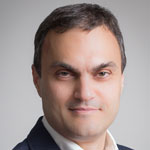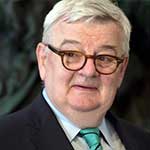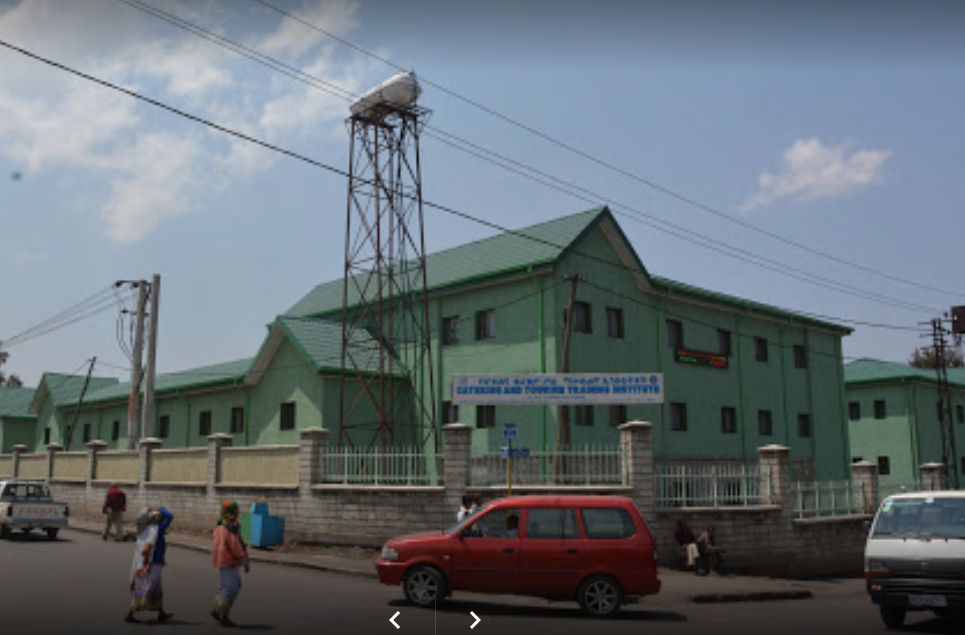
View From Arada | Jun 19,2021
Aug 28 , 2021
By Manos Antoninis
In the small northern Croatian town of Orehovica, preschoolers get together twice a week to play and learn. The classes, which include children of Roma background, are full of energy. Activities adapted to everyone’s needs have created a sense of belonging for every child, regardless of their identity. The teachers are trained in inclusive education practices, and know how best to support these young children before they enter primary school. Most important, parents play a central role at the preschool and feel supported and valued. The positive impact on the children has spilled over into the local community and improved social cohesion.
The Orehovica programme’s success underscores the longstanding truth that the period from birth to the age of five is vital to a person’s long-term development. The brain grows rapidly during this time and develops important skills that influence our health, how well we do at school, and how good we are at our jobs.
Access to high-quality early education helps nurture these skills and can yield remarkable benefits. US researchers have spent the past half a century studying the impact of such programmes on children who had attended them in the 1960s. They found that participation in early childhood education reduced the likelihood of children being placed in special education and increased high-school graduation rates by as much as 11 percentage points. These children experienced fewer suspensions from school, had better employment outcomes and overall mental well-being, and were less likely to receive criminal convictions.
Evidence from other countries points to a similarly clear pattern. In Chile, an analysis of fourth-grade students showed that children who had attended preschool – and poorer children in particular – did better in reading and mathematics than those who had not. In Indonesia, early childhood education reduced gaps between poorer and richer children in language, cognitive development, communication, general knowledge, and pro-social behaviour.
Despite the importance of these early years, a recent study by UNESCO’s Global Education Monitoring Report, 'Right from the Start,' estimates that two in five children, mostly in low- and lower-middle-income countries, are still completely missing out on pre-primary school. Children disadvantaged as a result of disability, ethnicity, language, poverty, migration, or displacement not only are already disproportionately more likely to suffer from malnutrition and poor health; they are also more likely to be unable to access preschool educations.
The preschool participation gap between children from rich and poor households is stark; in some African countries, it exceeds 60 percentage points. Ethnic gaps also can be large. In Greece, for example, only 28pc of Roma children are in pre-primary education, compared to an overall enrollment rate of 84pc.
'Right from the Start' argues that giving everyone the same educational opportunity from the beginning can play a powerful role in fostering inclusion. Giving all children access to pre-primary education, regardless of their background, identity, or ability, would level the playing field later in life. But most countries leave this up to chance. Only 28pc make pre-primary schooling compulsory for all children.
Access is only part of the picture. In the poorest countries, many preschools are underfunded and not equipped to provide high-quality inclusive education. Children need safe schools, engaging activities, and support from adequately trained teachers to thrive, but too many early-education environments ultimately fail them.
In Malawi, a survey of staff at childcare centres found that only one in three had a relevant qualification. But quality concerns exist in high-income countries, too. In the Italian region of Tuscany, for example, about 60pc of teachers said they were unfamiliar with the needs of immigrant, refugee, and Roma students.
The COVID-19 pandemic has worsened existing inequalities, making the case for an inclusive start in education even stronger. During the G7 summit in the United Kingdom in June, US First Lady Jill Biden and Catherine, the Duchess of Cambridge, championed the transformative power of universal early childhood care and education. To intensify efforts and galvanise cooperation, governments and international organisations will launch a new Global Partnership Strategy on early education this fall, with the aim of ensuring that every child can go to pre-primary school.
It is vital that countries prioritise early education appropriately. They must ensure teachers are trained in inclusive education and that curricula take into account children’s diversity. More should be done to collect data on those excluded, and governments must increase investment in early education programmes.
World leaders have repeatedly promised to “build back better” after the pandemic. When it comes to education, they need to get it right from the start.
PUBLISHED ON
Aug 28,2021 [ VOL
22 , NO
1113]


View From Arada | Jun 19,2021

Fortune News | Jun 29,2025

Fortune News | Nov 23,2019

News Analysis | Jan 05,2020

Radar | Dec 11,2021

Viewpoints | Oct 19,2019

Commentaries | May 31,2020

Commentaries | Jan 15,2022

Fortune News | Sep 14,2019

Radar | Nov 16,2024

Photo Gallery | 173675 Views | May 06,2019

Photo Gallery | 163894 Views | Apr 26,2019

Photo Gallery | 153921 Views | Oct 06,2021

My Opinion | 136547 Views | Aug 14,2021
Editorial | Oct 11,2025

Dec 22 , 2024 . By TIZITA SHEWAFERAW
Charged with transforming colossal state-owned enterprises into modern and competitiv...

Aug 18 , 2024 . By AKSAH ITALO
Although predictable Yonas Zerihun's job in the ride-hailing service is not immune to...

Jul 28 , 2024 . By TIZITA SHEWAFERAW
Unhabitual, perhaps too many, Samuel Gebreyohannes, 38, used to occasionally enjoy a couple of beers at breakfast. However, he recently swit...

Jul 13 , 2024 . By AKSAH ITALO
Investors who rely on tractors, trucks, and field vehicles for commuting, transporting commodities, and f...

Oct 11 , 2025
Ladislas Farago, a roving Associated Press (AP) correspondent, arrived in Ethiopia in...

Oct 4 , 2025
Eyob Tekalegn (PhD) had been in the Governor's chair for only weeks when, on Septembe...

Sep 27 , 2025
Four years into an experiment with “shock therapy” in education, the national moo...

Sep 20 , 2025
Getachew Reda's return to the national stage was always going to stir attention. Once...

Oct 12 , 2025
Tomato prices in Addis Abeba have surged to unprecedented levels, with retail stands charging between 85 Br and 140 Br a kilo, nearly triple...

Oct 12 , 2025 . By BEZAWIT HULUAGER
A sweeping change in the vehicle licensing system has tilted the scales in favour of electric vehicle (EV...

Oct 12 , 2025 . By NAHOM AYELE
A simmering dispute between the legal profession and the federal government is nearing a breaking point,...

Oct 12 , 2025 . By NAHOM AYELE
A violent storm that ripped through the flower belt of Bishoftu (Debreziet), 45Km east of the capital, in...